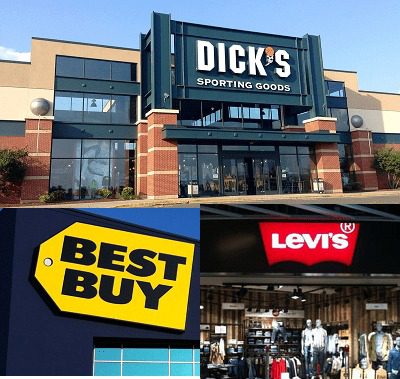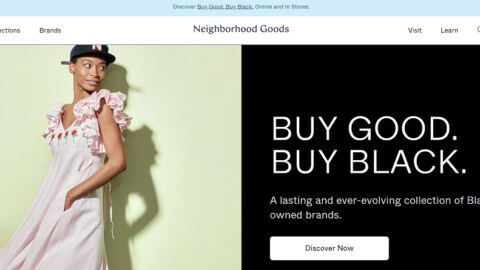The top executives of DICK’S Sporting Goods, Best Buy and Levi Strauss & Co. — all hard-headed businesspeople at the helm of successful brands — are embracing a more socially and politically engaged leadership style than has been typical for U.S. CEOs. The three executives were interviewed by NRF President Matthew Shay at a Jan. 13 NRF Big Show session, titled Company Conscience: Leading With Conviction.
For DICK’s Chairman and CEO Edward W. Stack, for example, the retailer’s decision to stop selling assault rifles following the Feb. 2018 Parkland school shooting was “not a tough decision,” he said. “The right decisions are never tough decisions.”
Stack had been concerned about school shootings since as early as the time of the Sandy Hook massacre, and noted that “our data group goes into hyperdrive whenever there’s a shooting. We found that we had sold [the Parkland shooter] a shotgun two months before. It wasn’t used in the attack, but it could have been. It was so emotionally moving for me and my wife to see those kids and parents that had had the worst nightmare ever.”
While he acknowledged that the decision has had an impact on DICK’S sales, “We have raised our guidance for the last three quarters,” said Stack. “My philosophy of leadership is that you have to lead with your heart. What you think is the right thing to do, is what you should do.”
Best Buy Creates Environment Where Employees Can Prosper
Hubert Joly, Chairman and CEO of Best Buy, is credited with engineering the retailer’s turnaround since he joined the company in 2012, but he noted that “it has all been made possible by the mobilization of the 125,000 people working at the company.”
A successful company must be about more than making money, according to Joly: “You have to make money to be in business, but the purpose is to contribute to our customers, employees, shareholders and the communities we’re in. Magic happens when you can align people with the purpose of the company.”
To that end, the retailer “took the proceeds from the [2017 tax reform] to invest in our employees,” said Joly. “We surveyed them about what benefits would be most helpful, and came up with a child care backup service. Employees can access backup care, if their regular child care falls through, for 10 days each year for a cost of $10. I believe the emotional response and connection employees have with the company creates the extraordinary effort they provide.”
Social Activism Remains Part Of Levi Brand’s History
Chip Bergh, President and CEO of Levi Strauss & Co., noted that the company has a “long history of not being afraid to take stands on social issues. We desegregated our factories in the South 10 years before that was the law, and we were one of the first companies to provide benefits to same-sex partners.”
Levi’s also has opposed the Trump administration’s Muslim travel ban and its rescinding of protection for the DACA “Dreamers” program. And even though the brand “doesn’t have a dog in the fight” in the gun debate, since it neither manufactures nor sells firearms, “I believe it’s one of the biggest social issues of the day,” said Bergh.
“I have a 10-year-old daughter who practices lockdown drills in her school,” Bergh noted. “For kids and young adults, this is the defining issue of their life, and that’s why we provide financial backing for organizations fighting gun violence. I think my employees expect it of me to take stands.”
Bergh reflected on how social changes are affecting the role of a corporate leader: “I think the CEOs of major corporations, and the companies, have a responsibility to give back,” he noted. “And if you do it in an authentic way, consumers will reward you.”













